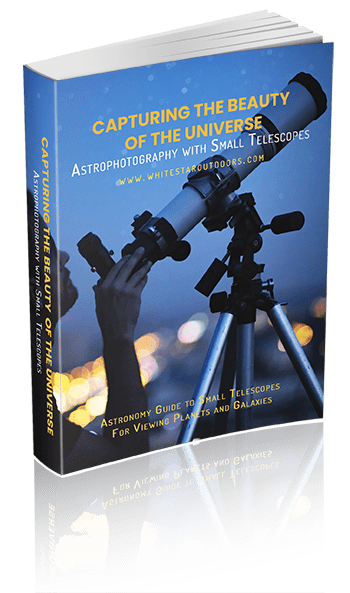Astronomy’s significant influence on many ancient civilizations throughout history, has been profound.
Here are some key ways in which astronomy impacted these societies:
Timekeeping and Calendars:
Astronomy played a crucial role in developing calendars for various ancient civilizations. By observing the movements of celestial bodies, such as the Sun, Moon, and stars, these societies were able to create calendars that helped them track time, schedule agricultural activities, and plan religious ceremonies. For example, the Egyptian calendar was based on the annual rising of the star Sirius, which signaled the start of the Nile flood, essential for agriculture.
Navigation:
Ancient seafaring civilizations, like the Phoenicians and Polynesians, relied on astronomical observations for navigation. They used the position of the stars and celestial landmarks to determine their direction and location while at sea, enabling them to explore and trade across vast distances.
Religion and Mythology:
Astronomy often played a central role in the religious and mythological beliefs of ancient civilizations. Celestial bodies and events were frequently associated with gods and divine forces. For instance, the ancient Greeks had a pantheon of gods related to celestial bodies and phenomena, like Apollo, the god of the Sun, and Selene, the goddess of the Moon.
Predicting Natural Events:
Astronomy allowed ancient civilizations to predict important natural events, such as eclipses and solstices. These predictions held both practical and symbolic significance. Eclipses, for example, were often seen as omens or signs from the gods.
Architecture and Urban Planning:
Many ancient civilizations incorporated astronomical alignments into their architectural designs and city layouts. Structures like Stonehenge in England and the pyramids in Egypt are believed to have been built with precise astronomical alignments, possibly serving as observatories or ceremonial sites related to celestial events.
Agriculture:
Agriculture was a fundamental part of many ancient civilizations, and understanding the movements of celestial bodies was crucial for determining planting and harvesting times. For example, the Mayans in Central America developed sophisticated agricultural calendars based on celestial observations.
Cultural and Scientific Advancements:
The study of astronomy often led to advancements in mathematics and science. Ancient astronomers made significant contributions to geometry, trigonometry, and the measurement of time. The work of astronomers like Claudius Ptolemy in ancient Greece and Al-Battani in the Islamic Golden Age laid the foundations for later developments in astronomy and navigation.
Cultural Identity:
The study of the night sky and celestial objects contributed to the cultural identity and heritage of various civilizations. Many ancient cultures developed their own unique constellations and star maps, which reflected their beliefs, stories, and cosmologies.
Overall, astronomy was not only a practical science but also a source of inspiration, mythology, and spirituality for ancient civilizations. It helped them make sense of the cosmos and its role in their lives, influencing everything from daily routines to religious beliefs and architectural marvels.
Astronomy has served as a powerful source of inspiration and spirituality for countless individuals and cultures throughout history.
Here, I’ll explain in greater depth how astronomy has played this role:
Cosmic Wonder and Awe:
The night sky, with its vast expanse of stars, planets, and celestial phenomena, has always evoked a sense of wonder and awe. Gazing up at the heavens can inspire a profound sense of humility and connection to something greater than oneself. This sense of cosmic wonder has often been associated with spiritual experiences, leading people to contemplate the mysteries of the universe and their place within it.
Connection to the Divine:
Many ancient civilizations believed that celestial bodies and events were manifestations of divine forces or gods. For example, in ancient Egypt, the Sun god Ra was central to their religious beliefs, and the daily journey of the Sun across the sky was seen as a representation of Ra’s divine presence. Similarly, the Mayans associated specific planets and stars with their gods and integrated celestial events into their religious rituals and calendar systems.
Symbolism and Mythology:
Astronomy has frequently been incorporated into the mythologies and creation stories of various cultures. Celestial objects and events often served as symbols of cosmic order, creation, and renewal. For instance, the cycle of the Moon’s phases was linked to themes of death and rebirth in many mythologies, while constellations were often associated with heroic figures or legendary animals.
Rituals and Ceremonies:
Astronomical events such as solstices, equinoxes, and eclipses have been central to the rituals and ceremonies of numerous cultures. These events marked significant moments in the calendar and were often seen as opportunities for spiritual reflection, communal gatherings, and the renewal of cosmic harmony. Observing and predicting these events was a way to connect with the rhythms of the natural world.
Cosmic Questions and Philosophical Reflection:
Astronomy has raised profound philosophical questions about the nature of the universe, the origins of life, and the existence of other worlds. These questions have spurred philosophical and metaphysical inquiries about the meaning and purpose of human existence. Philosophers and thinkers like Plato, Aristotle, and Ptolemy contemplated the cosmos and its relationship to human knowledge and spirituality.
Scientific Spirituality:
For some, the pursuit of astronomical knowledge itself is a form of spiritual practice. Scientists and astronomers who study the universe often describe a deep sense of awe and reverence for the natural world. Discovering the laws that govern the cosmos can be a spiritually fulfilling endeavor, fostering a sense of connection to the universe and a reverence for the elegance of its design.
Modern Astronomy and Cosmic Exploration:
In the contemporary era, astronomy continues to inspire awe as we explore the cosmos through telescopes, space probes, and observatories. Images of distant galaxies, nebulae, and planets captured by modern telescopes like the Hubble Space Telescope have a profound impact on our collective sense of wonder and our understanding of the universe’s vastness.
In summary, astronomy’s significant influence has been a source of inspiration and spirituality by connecting people to the grandeur of the cosmos, evoking a sense of wonder, and serving as a bridge between the physical and the metaphysical. Throughout history, it has played a central role in shaping cultural and spiritual beliefs, rituals, and philosophies, helping individuals and societies explore fundamental questions about existence and our place in the universe.





